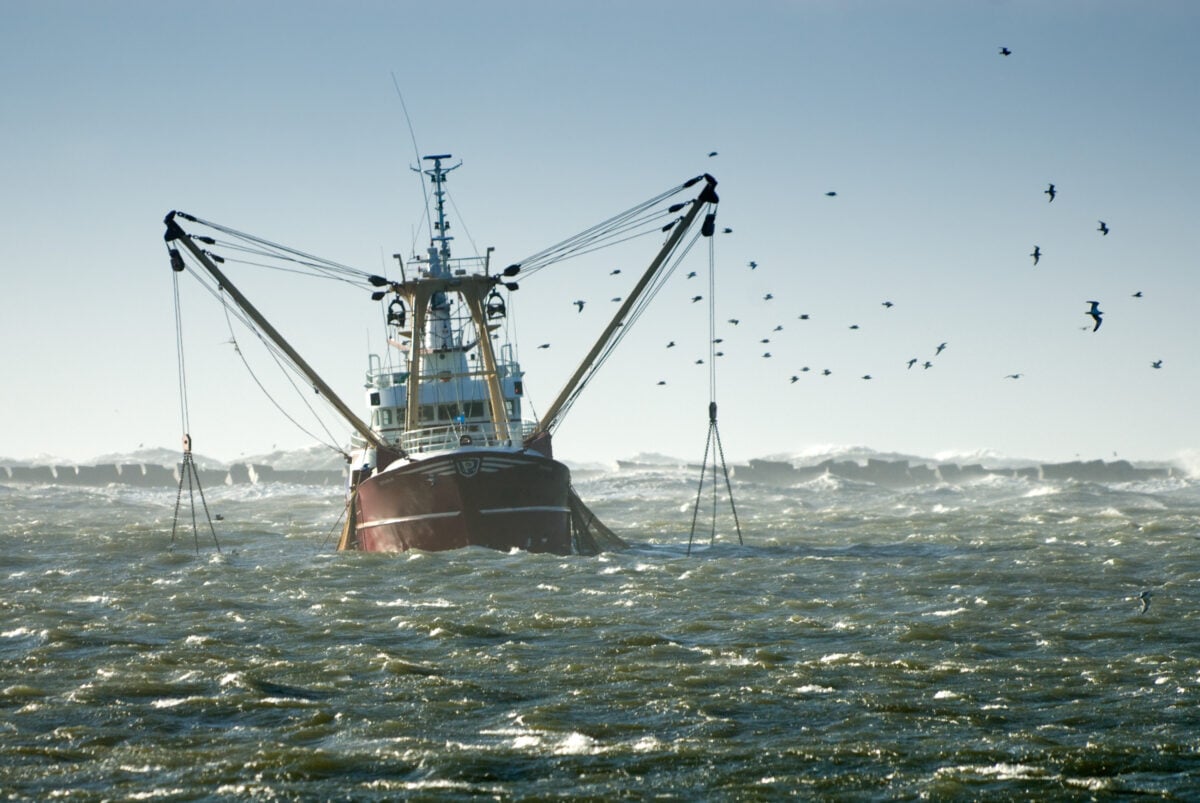A new study has found that eating like people living along the Atlantic coast in Spain and Portugal can lower the risk of developing conditions that can lead to diabetes and heart disease. It also found that the adopting the diet can slightly lower your carbon footprint.
The study has been widely covered in the media, with the Atlantic diet being hailed as the new way to eat healthily. Though it isn’t actually a new diet, being a standard way of eating for some Atlantic coastal communities. It’s a variation on the more familiar and well-studied Mediterranean diet, which emphasizes plant-based wholefoods and limited animal products.
So what exactly is the Atlantic diet? And is it as good for health and the environment as the media reports?
What is the Atlantic diet?
Like the Mediterranean diet, the Atlantic diet includes legumes, fresh vegetables, wholegrains, and olive oil, as well as wine drunk with meals. But it also includes more red meat such as beef and pork, and is high in fish, particularly cod.
While olive oil is the main source of fat in the Mediterranean diet, the Atlantic diet also includes more dairy products. Bread, pasta, rice, cereals, and/or potatoes feature in most meals.
What did the new study find?
The study was a six-month trial to look at how the Atlantic diet affects metabolic health. It also looked at whether it was associated with a lower carbon footprint than the participants ordinary diets.
Participants randomly put on the Atlantic diet were found to have a lower risk of developing metabolic syndrome than those who continued to eat what they usually did.
Metabolic syndrome is a group of conditions that occur together, raising the risk of type 2 diabetes, heart disease, and stroke. They include high blood pressure, high blood sugar, excess body fat around the waist, high cholesterol or hypertriglyceridemia (high levels of fatty molecules in the blood). According to the NHS, risk factors for metabolic syndrome are obesity, a diet high in saturated-fat, little exercise, smoking, and drinking in excess.
Despite the lowered risk of developing metabolic syndrome, being on the Atlantic diet did not help to reduce the incidence of high blood pressure, hypertriglyceridemia, or high blood sugar.
The Atlantic diet did lower individuals’ carbon footprints slightly by 0.17kg of carbon dioxide equivalents (CO2e) to around 3.38kg CO2e. But the difference in environmental footprint between the Atlantic diet and people’s regular diets was too small to be statistically significant.
Is the Atlantic diet actually healthy?

The plant-based wholefoods in the Atlantic diet are known to have health benefits. Wholegrains are a great source of fiber, omega-3 fatty acids, protein, and micronutrients like copper and magnesium. Olive oil is a source of heart-healthy unsaturated fats.
Legumes are an excellent source of protein and fiber, and are low in fat and sugar. They are thought to help lower cholesterol, and lower the risk of cardiovascular disease.
Meanwhile, eating lots of fruits and vegetables is crucial for health. Doing so lowers blood pressure and the risk of heart disease and stroke. It can help to prevent some types of cancer, improve digestion, and contribute to lower blood sugar levels.
The animal-based components of the Atlantic diet aren’t essential for health, and can have some negative health impacts too.
“Like the Mediterranean diet, the Atlantic diet takes a good first step by moving away from eating mammals and birds,” Noah Praamsma, Nutrition Education Coordinator at the Physicians Committee for Responsible Medicine, tells Plant Based News. “This makes it look great compared to the Standard American Diet, but it misses out on the full potential of a plant-based diet.”
Seafood
While fishes are usually considered to be a healthy source of omega-3 fatty acids, Praamsma points out that you can get these from plant-based sources.
“Fish oil gets a bit overhyped,” he says. “Omega-3 fatty acids don’t actually originate in the fish, but rather fish get them from microalgae, which is related to kelp. In the same way, humans can get omega-3 fatty acids from foods like flax or chia seeds.”
Red meat and dairy
Red meat has been associated with several diseases and health conditions, including those that are part of metabolic syndrome.
Eating red meat just twice a week increases the chance of developing type 2 diabetes. Both red and processed meat have been linked to colorectal cancers. Red meat can be high in saturated fats, increasing levels of bad cholesterol.
The meat in the Atlantic diet might be processed meat such as sausages, chorizo, and cured ham, which are popular throughout Spain and Portugal. These types of meats in particular carry higher risks for developing cancer. They are high in saturated fats and salt and are associated with high blood pressure and heart disease.
“The Atlantic diet also emphasizes dairy products,” says Praamsma, which “don’t contain any fiber and are often high in fat. Dairy products are the leading source of saturated fat for Americans.”
Best for metabolic health?
If you want to improve your metabolic health, a plant-based diet might actually be a better option.
Plant-based diets reduce the risk of developing metabolic syndrome by about half. They also lower the risk of developing each of the conditions included in metabolic syndrome. People who eat plant-based diets tend to have lower levels of triglycerides and lower cholesterol. Their blood sugar and blood pressure is also lower.
“More and more evidence is pointing to the overwhelming benefits of plant-based diets for metabolic health,” says Praamsma. “A well-planned vegan diet also reduces the risk of cardiovascular and other types of chronic diseases and can even reverse these conditions.”
Environmental impact of the Atlantic diet

Though the new study found that the Atlantic diet has a slightly lower carbon footprint than participants’ regular diets, it will remain far higher than that of plant-based diets.
Red meat, particularly beef and lamb, have the biggest environmental footprints of all foods. The beef industry is a leading cause of deforestation, while just one kilo emits 60 kilograms of greenhouse gasses. Farming cows is responsible for around a third of emissions of human-caused methane, a potent greenhouse gas.
Cheese is also a high-carbon food, emitting over 20kg of greenhouse gases per kilo. Pig meat is lower in emissions, but still worse than plant-based foods. It also comes with a host of other problems, including generating vast amounts of manure. In Spain, which has become a major global pork producer and farms most pigs intensively, pig manure is polluting drinking water with dangerously high levels of nitrates.
Plant-based foods, by comparison, can have a carbon footprint that is up to 50 times lower than most animal products. They also require significantly less land. This means that a widespread adoption of the diet could free up agricultural land to be rewilded. This would draw down carbon and create wildlife habitat at the same time.
Impact of seafood
The health benefits of eating fishes should must be weighed against the harms that fishing and fish farming cause.
Fish farming now produces more fishes for food than the wild capture of fishes. But fish farming has serious environmental impacts. These include high use of pesticides and chemicals that spread into the surrounding marine ecosystems, harming wildlife.
Industrial fishing has led many populations of fishes to the brink of collapse. Populations of cod, which are a big component of the Atlantic diet, are severely depleted in both the Gulf of Maine and in waters around the UK.
Discarded fishing nets create a mortal hazard for many marine animals who get caught in them and can’t escape again. Many animals including dolphins and sea turtles get caught as “by-catch” by fishing vessels. This often results in serious injury or death.
A wider adoption of the Atlantic diet would put further pressure on marine life or encourage more fish farming. But studies show that a plant-based diet has many health benefits, including improving metabolic health, with the added advantage of having a far smaller environmental footprint.






